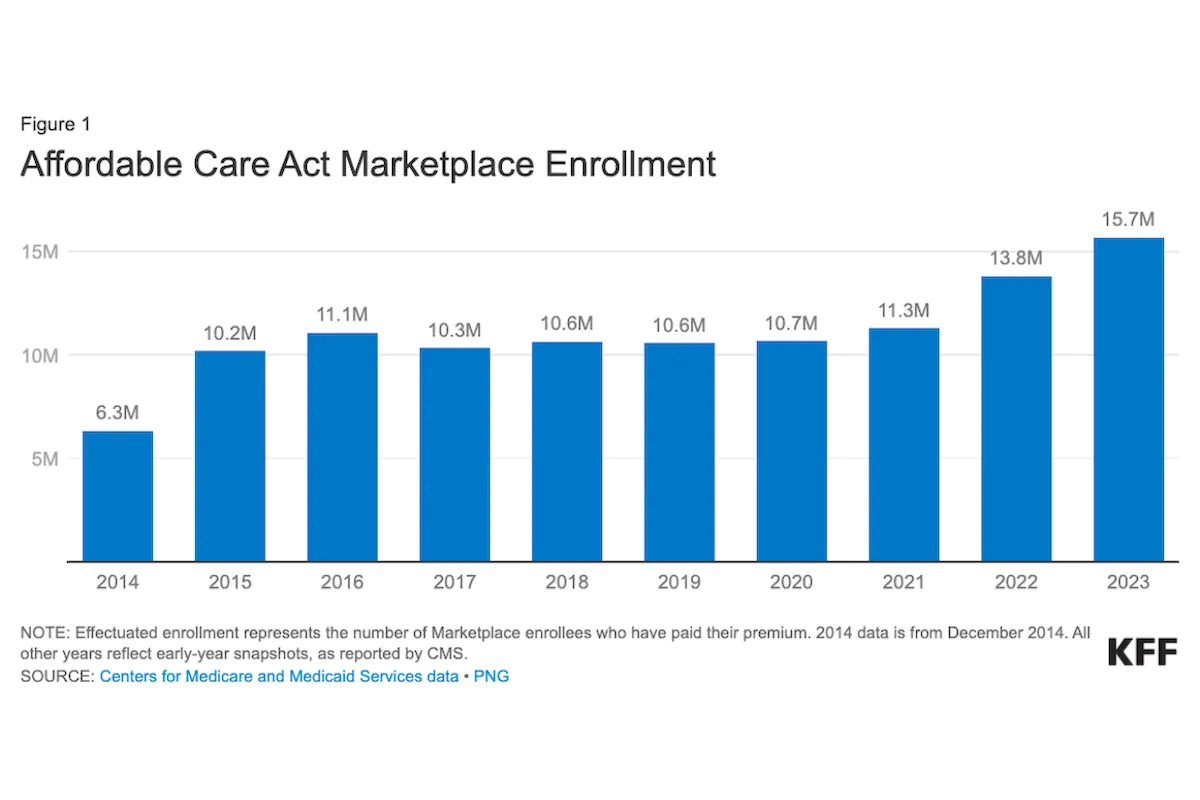The U.S. Department of the Treasury has released data indicating a significant uptake in Affordable Care Act (ACA) marketplace enrollment since its inception in 2014. According to the report, one in seven Americans have obtained health insurance coverage through these marketplaces, commonly known as Obamacare.
The data reveals that a total of 49.4 million Americans have enrolled in ACA plans since 2014, with enrollment reaching its zenith at 20.8 million individuals in 2024. This substantial participation underscores the ACA's impact on healthcare accessibility in the United States.
Insurance providers participating in the ACA marketplaces include CVS Health's Aetna and UnitedHealth Group. These plans offer income-based subsidies and are available through the federal Healthcare.gov website or state-run platforms.
The report highlights a notable trend in enrollment patterns across different states. Those that have not expanded Medicaid programs under the ACA, or did so later, have experienced higher marketplace coverage rates. For instance, Florida, Utah, and Georgia reported an average of 20% of residents enrolled in marketplace plans, compared to 12% in states that expanded Medicaid coverage.
The Treasury's analysis, based on Internal Revenue Service data from tax forms and other sources, provides insights into the ACA's reach and impact. Notably, the average cost of premiums for a year of enrollment in a marketplace health plan has decreased to $800 during the Biden administration's tenure.
"Marketplace enrollment has surged under the (Biden) Administration, which has especially helped American families with their monthly bills and entrepreneurs who are looking for coverage as they start new businesses."
This statement emphasizes the ACA's role in supporting both families and small business owners.
The ACA, signed into law on March 23, 2010, has introduced several key features to the U.S. healthcare system. These include the prohibition of coverage denial due to pre-existing conditions, the establishment of essential health benefits for all marketplace plans, and the implementation of the 80/20 rule requiring insurers to spend at least 80% of premium dollars on health care.
Additionally, the ACA has expanded coverage for preventive services without cost-sharing for patients and allows young adults to remain on their parents' health insurance until age 26. The law has also fostered innovation in healthcare delivery through the creation of the Center for Medicare and Medicaid Innovation and the implementation of the Medicare shared savings program.
As of 2024, 39 states and Washington D.C. have expanded Medicaid under the ACA, further extending healthcare coverage to millions of Americans. The ongoing evolution of the ACA continues to shape the landscape of healthcare accessibility and affordability in the United States.
